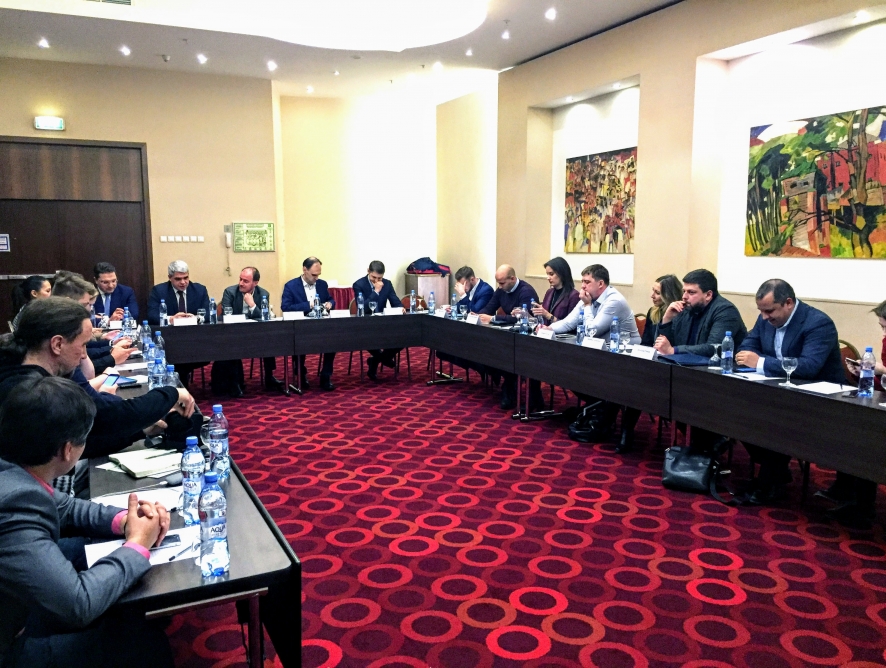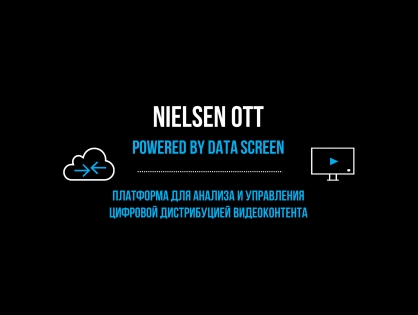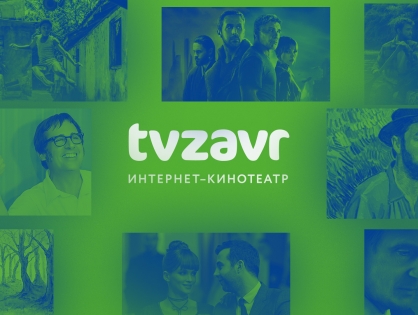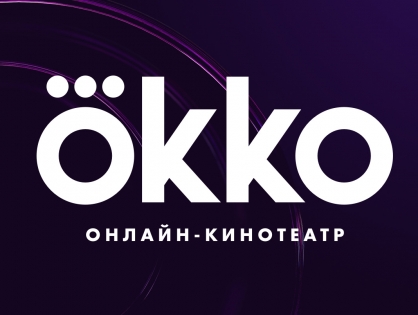 February 20, Holiday Inn Lesnaya hosted a round table “Video viewing 2020 “organized by “Telecom Daily” Analytical Agency.
February 20, Holiday Inn Lesnaya hosted a round table “Video viewing 2020 “organized by “Telecom Daily” Analytical Agency.
The event was attended by the largest Russian operators – Tricolor TV, Rostelecom, MGTS, ER-Telecom, TTC, Orion Express, Net-by-Net; OTT services – ivi, Megogo, Smotreshka; technology companies – Yandex, LG, as well as other market participants.
The format of the event was very intimate, and the discussion – very lively. 3 main issues were put on the agenda of the meeting:
- What content will be in demand on the market in the next 3 years
- What is technologically required from companies to ensure high quality provision of content to end customers
- How to monetize content and increase profits. In other words – how to make money.
For each of the issues presented, there was strong discussion and many interesting ideas and opinions were expressed.
Content
During the discussion of the content, the participants came to the conclusion that recently the interest in high quality content has already been formed by the user, the share of penetration of TV with support for 4K technology is growing significantly, the penetration of Smart TV is growing too. According to representatives of LG, today 4K TVs are sold about 50% of the total.
But, as noted by Andrei Kholodny, Deputy General Director for the development of non-linear services of Tricolor TV, according to research – 1/3 of the population of the regions moved to subsistence farming after the situation with the dramatic changes in the exchange rate in 2014. This fact significantly reduces the current purchasing power of potential subscribers in the regions and severely limits ARPU. Also the participants noted that the cost of content production is still highly dependent on the dollar rate, the cost of content greatly increase the expenditure component of operators, and therefore reduce the marginality of services.
One of the measures to increase marginality, at the suggestion of Alexei Nazarov, Advisor to the President of TTK on business development in the mass market, is partnership and introduction of a consolidated approach to the purchase of content. This approach, according to Alexey Nazarov, will help all parties to win: the operator will increase the efficiency of the business, and the subscriber will get maximum access to the content, regardless of the operator. “The hourglass has turned over,” said Alexey,”5G networks are becoming a threat.”
Another important topic in the discussion of content was, of course, the topic of its licensing. Some participants expressed the opinion that the demand for licensed content is not increasing due to the wide availability of pirated content in Russia. At the same time, Alexey Byrdin noted that at the moment, many Telecom operators themselves contribute to the spread of pirated content, allowing subscribers of their networks to use the services of pirates. However, Alexey also stated that it is impossible to stop pirated content by local measures in relation to individual market players. The system requires a legislative approach to solving this problem.
Special interest in this discussion was the possible cancellation of network neutrality. The opinions were divided. Some representatives of operators suggested that this law will be lobbied, as it will compensate for the costs of network development and increase the marginality of the business. However, another opinion was directly opposite: operators, on the contrary, are very dependent on video services and will not be able to seriously dictate the terms. The most that threatens modern partners in the distribution of video content is the licensing of servers on the networks of operators.
Technologies
Technology has become one of the hottest topics of discussion. And this is understandable – the network’s technical readiness to provide the required quality of services is not an easy task, especially in terms of costs. And especially in conditions when almost the entire infrastructure of many operators does not allow providing modern requirements and needs considerable modernization. As noted by Andrey Chazov, marketing Director of JSC “ER-Telecom holding”, modernization is required for all levels – both for the last mile and for the rest of the network infrastructure of the operator.
During the discussion, there was a very interesting question from operators: how can other market players help operators with the modernization of the network? After all, according to operators, it is in the General interest of business. According to Irina Skripnikova, head of Yandex video advertising development group, win-win effect will be achieved for everyone if each player in the industry specializes in their field. If for operators it is the construction of infrastructure, for integrators it is the development of high-tech data-solutions for partners that will stimulate the review and will be more effective.
Money
The topic of income caused heated discussions. However, none of the participants gave an obvious life-hack about how to monetize video content on a network with high marginality. Alexey Nazarov noted that in addition to income, expenses play an important part in marginality. And the reduction of it will help to improve the efficiency of business. According to Alexey, one of the right vectors for further development of the market would be the creation of a single CDN infrastructure for all operators (similar to the way mobile operators reduce the cost due to the common infrastructure of base stations). This would reduce operators’ costs while maintaining a high quality of service. Also, Alexey noted that at this stage in Russia there is still a high percentage of conventional TV (without Smart TV). However, in the short term, set-to-box will “die” and they will be replaced by Smart TV, where the subscriber will choose the service solely on the basis of convenience and price.
Irina Skripnikova noted that TV, as a device of consumption of video content is rapidly aging. The modern youth audience (up to 35 years old) is mega mobile and consumes content mostly on mobile phones and tablets. And if you focus your marketing activity on Smart TV and get attached to TV, it will significantly limit the company’s potential development in the market.
Alexander Shindin, Deputy General Director of distribution of online cinema ivi, expressed the opinion that VOD services focus on VOD services, while operators have many other services. Therefore, operators and VOD services should not compete with each other. According to Alexander, in the future only partnerships of operators and VOD-services can lead to ARPU growth.
Andrey Chazov noted that currently all Telecom operators come to the subscriber with the same offers. “Give us USP!”- told Andrey to OTT-services.
Andrey Kholodny recommended training subscribers to pay for services and increase their cost in regions with high ability to pay, because current situation of the operators with ARPU does not allow them to be truly effective. At the same time, Andrey noted that outsourcing of VOD services promotion by video services is ineffective for large operators as it will lead to meaningless loss of marginality; content sales operators can provide themselves.
Summary
It is obvious that the market of paid TV and OTT now is in contradiction. On one hand, large Telecom operators receive serious profits and have enormous opportunities from the point of view of the subscriber base. But on the other hand – the market is almost saturated, and operators have serious difficulties with the modernization of networks, and, as a consequence, with the ability to offer the market competitive and high-margin services.
OTT services are still growing in the sense of income. But they are more flexible, in the technological and marketing sense, specialize in the sale of VOD content, while not dependent on the Internet channel provider. And, therefore, they have their own advantages which allow them to actively develop. At the same time, both have a big problem in the sale of licensed content – mostly Russian user still prefer pirated content when it’s available. This fact force players to look for different ways out of the situation – operators do not block access to questionable sites without a court decision, and OTT-services seek to expand their library as much as possible and get exclusive rights to content. But this is not the end of the story, because in addition to operators and OTT-services, on the Russian market there are integrators in the role of video services with unique competencies for Big Data, a huge audience, independent of the Internet provider and open to all partnerships.
In our opinion, communication on Lesnaya Street turned out to be very useful. It forced market players to ask each other “inconvenient questions” directly: who will pay for the network, what will happen if they cancel the network equality, how OTT services differ and what they can give to the operator, what hinders the development of the licensed video content market and many others. If there are questions and they are asked – than even if the final answer to them isn’t yet found, it surely will be. This means that in the near future, many contradictions in the industry can be resolved in the direction of effective partnerships, a result of which, hopefully, will ultimately benefit the consumer.
At the request of RUVOD, the participants of the roundtable Telecom Daily – “Video viewing 2020”, commented on the contradictions that arose during the discussion.
Zharkyn Tursynov, Director of business development of “Lifestream”: “OTT services significantly help operators with optimization of content delivery in their networks, including significantly reduce TV traffic. An example of such experiences would be integration of services “Smotreshka” into “TransTeleCom”.
Victor Chekanov General Director of MEGOGO in Russia: “OTT services are growing. They are more and more fashionable. But the Telecom networks need to be updated. And the existing principles of network neutrality prevent this renewal. On a reasoned proposal to participate in the renewal of networks, OTT, in response, promised more content in 4K, 8K, HDR. Some of them – even on an exclusive basis. Therefore, it will grow everywhere. Especially prices, Internet speed and picture quality”.
Dmitry Pashutin, head of the Analytic service of media services of Yandex: “the Round table, organized by Telecom Daily was a very interesting because of the participants competing in the same segment. In my opinion, the further growth of the entire industry and its configuration will depend on how they learn to negotiate and build mutually beneficial partnerships. So far, the dialogue is quite complicated. Telecom operators offer online cinemas to pay for the development of the network and reproach them for lack of exclusivity. Online cinemas convince Telecom not to build their solutions, and partner with them, simultaneously accusing Yandex of helping pirates. Yandex pointed out the difficulty of finding content between applications, reminding of legal tools to fight piracy, but not Yandex search and encourages everyone else to do their work. It seems that there is still a long dialogue ahead and such meetings will allow the whole industry to find effective joint solutions.
RUVOD thanks Telecom Daily for participating in the event “Video viewing 2020”.
SOURCE: ELENA YAKOVLEVA





Отправить ответ